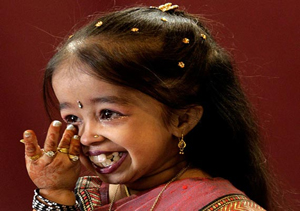New Delhi, Jan 30: In a major shift of strategy ahead of the Delhi assembly polls, the Bharatiya Janata Party (BJP) has decided to rope in its senior leaders for massive public rallies.
Its star campaigners like Prime Minister Narendra Modi, Union Home Minister Amit Shah, BJP chief JP Nadda, Uttar Pradesh Chief Minister Yogi Adityanath, and other union ministers would now be addressing massive public rallies in addition to ongoing neighbourhood meetings.
"The big rallies would begin from February 1. While 'Nukkad' meetings will take place till the last day of campaigning, there would be big rallies of the top leadership of the party, " informed a senior party leader.
Sources said the BJP has changed its strategy after the success of its grassroots contact programme as the party wants to consolidate its gains.
"As part of the reworked strategy the BJP has asked its various Mandals to organise public meetings of 10,000-15,000 people in each assembly segment to reach out to the masses," sources added.
While there are two planned for Prime Minister Modi, two have been planned for JDU chief and Bihar Chief Minister Nitish Kumar along with Nadda and Amit Shah. Yogi Aadityanath too would be addressing 12 rallies.
The party is leaving no stone unturned to secure massive gains, which it feels can be converted to victory in the forthcoming polls.
Party sources feel that the relentless campaigning under the guidance of Amit Shah and Nadda has ensured that the morale of party cadre is at an all-time high.
"The neighbourhood meetings have ensured that we have been able to make the people of Delhi aware of the lack of work under the Arvind Kejriwal led Aam Aadmi Party government. They have also been apprised about the anti-national views of the opponents and we think that this is expected to turn the polls into our favour," sources added.
Delhi is scheduled for assembly polls on February 8 and the results for the 70 constituencies will be declared on February 11.
As part of the new strategy, senior leaders like JP Nadda, Amit Shah, Uttar Pradesh chief minister Yogi Adityanath, ministers like Rajnath Singh and Smriti Irani would be holding public rallies in various parts of the city. Several other chief ministers from various BJP ruled states are also expected to be roped in for the campaign.
The strategy for reach out to the masses is an attempt at weakening the hold of AAP on Delhi. With positive feedback coming after the success of the neighbourhood meetings in the past week, the BJP is now looking to increase its potential reach with polls just days away.
Till now the party had deployed 70 union ministers to hold at least one public meeting and one 'padayatra' each as part of the campaign.
 Jaipur, Aug 19: World's shortest woman Jyoti Amge today released the biggest book measuring 30x24 feet written by a Jain Muni at a function here.
Jaipur, Aug 19: World's shortest woman Jyoti Amge today released the biggest book measuring 30x24 feet written by a Jain Muni at a function here.




Comments
Add new comment